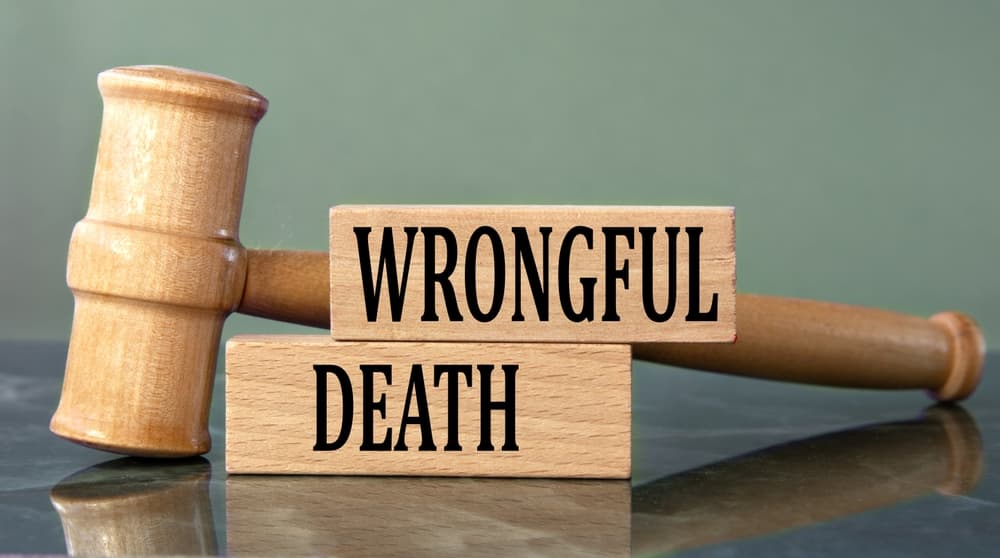Wrongful death is a legal term to describe a situation where the negligence, wrongful act, or misconduct of another person or entity causes someone’s death, whether through medical malpractice, car accidents, workplace accidents, or defective products, to list a few.
Losing a loved one is an incredibly difficult and painful experience, and finding out that their death was preventable compounds that grief.
If you believe that someone else’s negligence or intentional harm caused your loved one’s death, always seek legal advice to understand your rights and options. Contact a New Jersey wrongful death attorney near you who understands wrongful death cases to discuss your situation and seek the justice and compensation that you and your family deserve.
Understanding Wrongful Death Claims

When a person dies due to the negligence or intentional harm of another individual or entity, they may have suffered from a wrongful death.
Wrongful death claims are separate from criminal charges, and they allow the surviving family members to seek compensation for their loss through the civil justice system. While no amount of money can replace a loved one, a wrongful death claim can help provide financial stability and hold the responsible party accountable.
In a wrongful death case, the burden of proof lies with the plaintiff, the family members who bring the case against the defendant and accuse them of causing a wrongful death.
The plaintiff must establish that the defendant’s actions directly caused the death and that the defendant’s actions were negligent or intentional. Proving negligence requires showing that the defendant had a duty of care, breached that duty, and that the breach resulted in the death.
If you believe a loved one suffered a wrongful death, speak with an experienced wrongful death lawyer to learn more about your options.
Types of Wrongful Death Cases
Many different scenarios may result in a wrongful death case. Some common examples include:
Medical Malpractice
Medical malpractice occurs when a healthcare professional, such as a doctor, nurse, or hospital, provides substandard care that results in a patient’s death. Examples of medical malpractice include surgical errors, misdiagnoses, medication errors, and birth injuries.
Car Accidents
Car accidents are a leading cause of wrongful deaths. When a person dies in a car accident caused by another driver’s negligence, the surviving family members may have a wrongful death claim. Some common examples of negligence include cases involving drunk driving, distracted driving, speeding, or reckless driving.
Workplace Accidents
Workplace accidents can be fatal, especially in hazardous industries like construction or manufacturing. If an employer’s negligence or failure to provide a safe working environment leads to an employee’s death, the surviving family members may be eligible to file a wrongful death claim.
Defective Products
If a person dies due to a defective product, like a faulty vehicle part or a malfunctioning consumer product, the manufacturer may be held responsible for wrongful death. Product liability laws exist to protect consumers and hold manufacturers accountable for their products.
Premises Liability
Premises liability cases involve deaths that occur due to hazardous conditions on someone else’s property. These include slip and fall accidents, inadequate security leading to violent incidents, or poorly maintained premises.
Why You Need a Wrongful Death Attorney

Losing a loved one is an emotionally challenging experience, and dealing with legal matters can feel overwhelming on top of your grief. However, seeking legal representation for a wrongful death case is important for several reasons.
Legal Knowledge and Guidance
Attorneys with experience with wrongful death cases will help guide and support you while working through the legal system. They understand the laws and regulations related to wrongful death claims, ensuring your case is handled properly. This takes the burden off your shoulders and gives you confidence that your lawyer will manage your case carefully.
Gathering Evidence
A skilled attorney knows how to collect and preserve the evidence you need. This often includes obtaining medical records, accident reports, witness statements, and any other relevant information that can strengthen your claim.
Determining Liability
A wrongful death attorney will thoroughly investigate your loved one’s death to determine who you can hold responsible. They will work diligently to build a strong case and pursue just compensation.
Negotiating with Insurance Companies
Insurance companies will often try to minimize their payouts in wrongful death cases. Having an attorney ensures that you have someone to negotiate on your behalf and fight for fair compensation. They will handle all communication with the insurance company and protect your rights throughout the process.
Emotional Support
Losing a loved one is a traumatic experience, and having an attorney who is compassionate and understanding can provide valuable emotional support during this difficult time. They will guide you through the legal process, answering any questions or concerns you may have along the way.
If you believe that your loved one’s death resulted from someone else’s negligence or intentional harm, seek legal advice. Contact a wrongful death lawyer with a track record of success to discuss your situation and explore your legal options. They will provide guidance for your family while fighting for justice and compensation on your behalf.
Talk to a Wrongful Death Lawyer Right Away
If you believe your loved one died due to the negligence, wrongful act, or misconduct of another party, never delay in consulting an experienced wrongful death attorney to discuss a possible case.
Contact a wrongful death lawyer for free today to talk through your options and seek the justice and compensation your family deserves. You don’t have to decipher the legal process alone, nor should you try to do so. Seek the support of a skilled personal injury lawyer who will fight for your rights and ensure your voice is heard.









